One of the interesting responses to the current pandemic has been a turning back to gardening. Plant nurseries and online seed catalogue companies have been inundated with orders for seeds, planting boxes and fertilizers. First time gardeners are crying out for help as they dig their inexperienced hands in the dirt. What concerns me, however, is that many of these gardeners have no idea how to connect their gardening experiences with their faith. Yet I think that the garden is one of the best discipleship tools we have available. We might read about the life, death and resurrection of Christ in the Bible, but in the garden we experience it. Every time we plant a seed, bury it in the ground and watch it burst through the soil, grow and bear fruit, it offers us the hope of resurrection.
I feel that every act of gardening provides fuel for discipleship. For example, it is tomato planting season in Seattle and as I moved my plants outside and got them ready to plant, I realized that my preparation provides good lessons for us as we think about reopening our churches now that COVID-19 restrictions are being slowly removed.
We might read about the life, death and resurrection of Christ in the Bible, but in the garden we experience it. Every time we plant a seed, bury it in the ground and watch it burst through the soil, grow and bear fruit, it offers us the hope of… Click To TweetDon’t Plant Too Soon
We all get impatient to get our tomatoes in the ground too early. Plant nurseries in Seattle make a lot of money in May and June from impatient gardeners who plant too early and regret it.
Are we in danger of doing the same thing with our churches I wonder? Are we so impatient to get back to the old ways of gathering that we we are likely to open too soon and regret it, spreading the virus before it is contained. Are our plants (congregational members) likely to die just as those early planted tomatoes do because of it?
Don’t Plant Too Fast
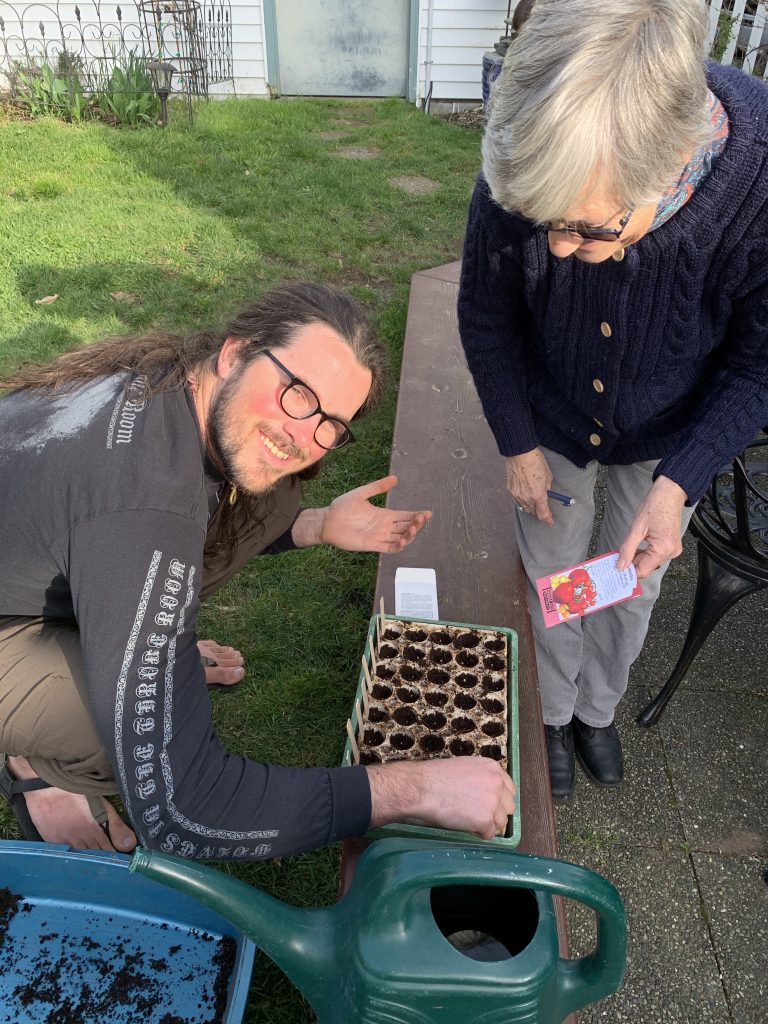
Tomato plants that have been inside for a long time need to be hardened over several days before they are exposed to the full day of sunshine – otherwise they will get sunburnt or scorched and their growth will be stunted because they are not used to the cold new environment. I move them outside for a couple of hours for the first few days, then four for the next few, then six and finally for the whole day.
What about in our churches? Are we likely to give our congregations “sunburn” by exposing them too quickly to the light? Do we need the same kind of approach as I have with my tomatoes – small group gatherings for a short period of time to start with, then larger gatherings if everything seems OK and then finally the whole congregations with the necessary precautions still being taken?
Don’t Plant Too Shallow
When you finally get to plant those tomatoes, you don’t just put the part of the tomato in the ground that was covered by soil in the pot, you put as much in the ground as possible because the part that has been exposed will grow new roots and give you a much sturdier plant. We usually place them on the side and cover the first few inches with soil. Your plant may not look as big but it will be much happier and healthier.
So what is the equivalent in our churches you may wonder? Well I think that we need to “plant” congregational members in such a way that they are able to put down strong and supportive roots in the new soil. The world that we are all emerging into is different from the world we left behind. How much of the “old growth” in our lives needs to be buried so that the new plants that emerge can grow healthy and strong?
Support Well from the Start
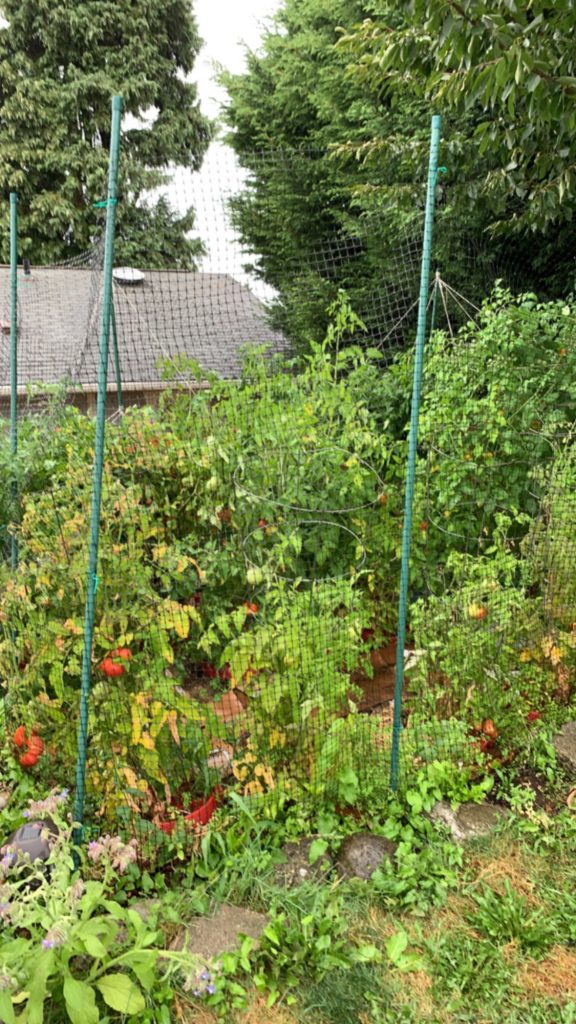
We put up tomato hoops whenever we plant our tomatoes. Wait even a week and they are hard to get around your plants. We also put down a watering system. We have learned from experience that this too is much harder to thread through our tomato patch if we don’t put it down on planting day.
Maybe it is something we need to consider in our churches too. What kinds of support will your congregations need – support for dealing with anxieties, PTSD, ongoing fear and the loss of loved ones as well as the economic realities of lost jobs and investments, new dynamics in the work place and the possibility of a deep recession? Do you have health care workers and hospital cleaners, grocery staff, farmers or delivery people in the congregation who may have special needs? What kind of support will church leaders need? We will not be the same either. We will need support, healing and encouragement as we move forward.
While You Are Waiting Build up the Soil
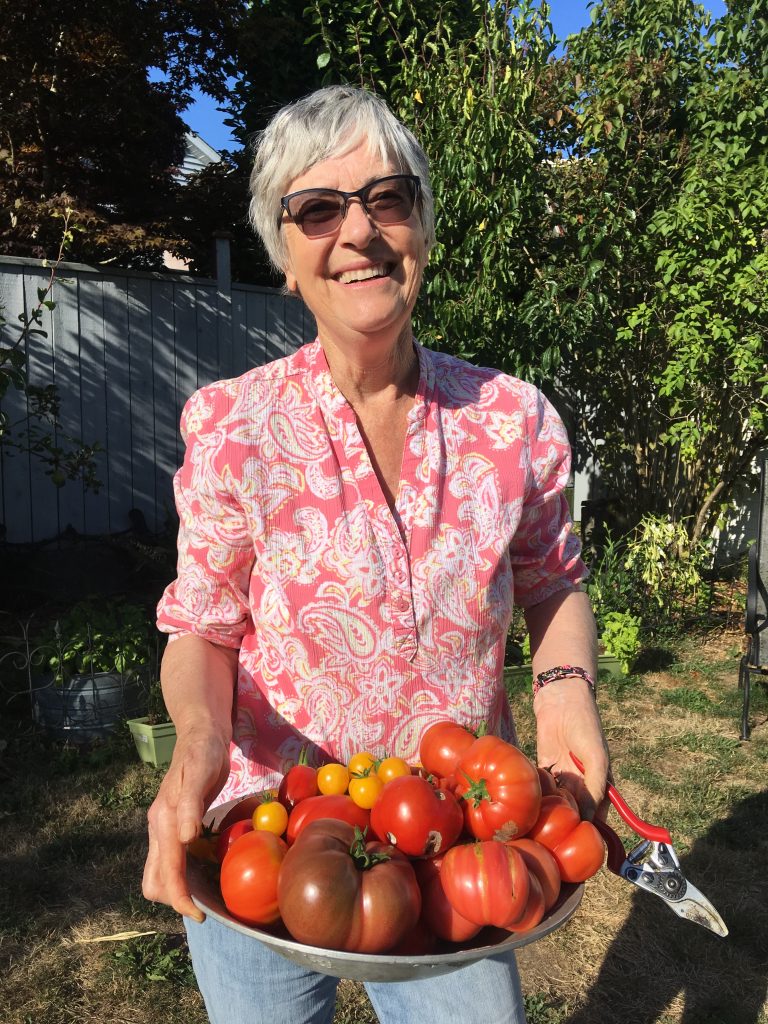
Novice gardeners think that all they need is a good bag of potting soil, some compost and some fertilizer, all put together on the same day they plant. Their tomatoes will be much healthier if the soil has been built up over a period of time, however. Tomatoes like rich soil with lots of compost. Make sure you use the right fertilizer though. Too much nitrogen means lots of great green growth, but it could mean much less fruit.
There are other things we need think about too. Tomatoes need bees to pollinate them – less bees mean less tomatoes, so we don’t just need to work to build up the soil that we are planting them in, we also need to build up the surrounding garden, which hopefully has lots of flowers that attract the bees that will pollinate your tomatoes.
Wow, now this topic I could talk about for ages when I think of our churches. This is not just the time for streaming worship services on Sunday, it is a time for “building up the soil,” the community in which each person is planted and for adding plants or connecting to other congregations that can provide the pollinators that will be needed for the future.
Part of what our church response to COVID-19 has forced many of us to do is to form collaborations with other churches and organizations that have resources and “pollinators” that we lack. This is a good time to identify these and to nurture and strengthen the relationships that you will need in the future.
What is Your Response?
As I write this for you to prayerfully consider, I must remind you (full disclosure!) that I am not a pastor, though I do interact with people from a lot of churches and am concerned that our approaches to reopening will cause casualties, not just because we try to bring people together too close too quickly, but also because we forget that our people are not the same as they were before this all began.
So what is your response?
- What kind of preparation do you think is necessary before we reopen our churches – for you and for your congregation?
- What special needs are members of your congregation likely to have?
- What kinds of new discipleship and faith formation do you think will be most effective in the months ahead?
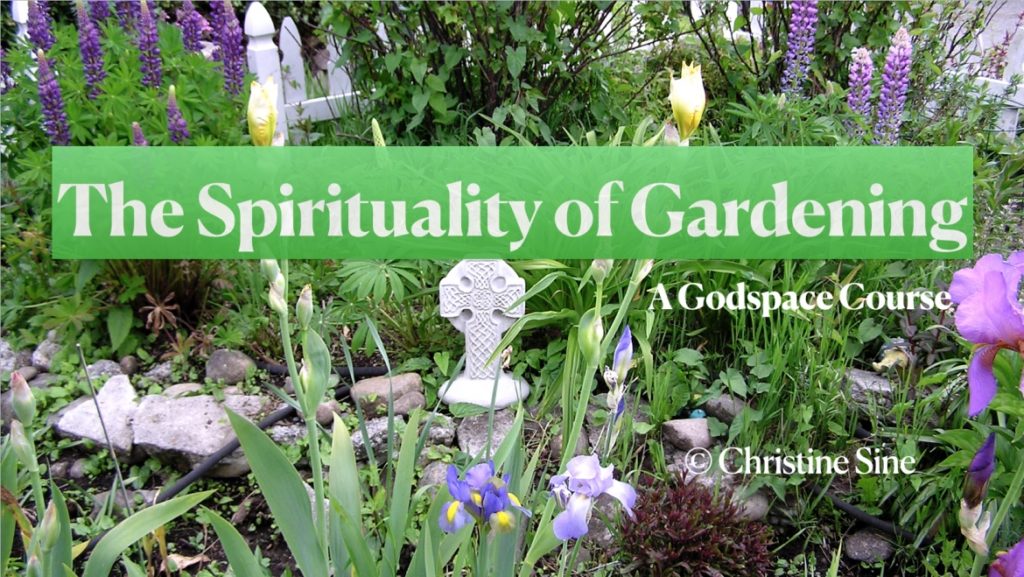
If you are interested in learning more about the Spirituality of Gardening, check out Christine’s recently launched online course at https://godspacelight.com/2020/05/27/launching-the-spirituality-of-gardening-online-course/
Join a Fall 2020 Learning Cohort
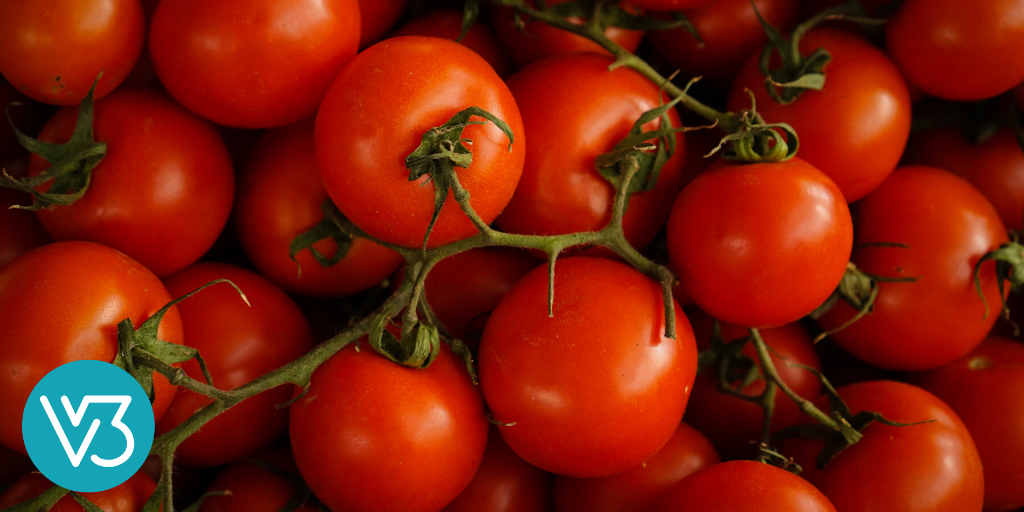
Share this Post
